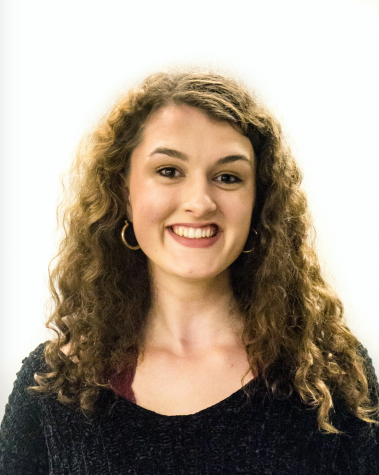This week’s MCSG meeting began with a presentation and short discussion led by Dean of the Kofi Annan Institute for Global Citizenship (IGC) Donna Maeda. Maeda began by discussing her original vision for the IGC.
“My charge was to bring the different elements of Macalester’s education mission together: internationalism, multiculturalism, and service to society … all of course under the umbrella of academic excellence,” Maeda said. Maeda went on to discuss the tension between internationalism and multiculturalism at Macalester.
“If you do a search [on Macalester’s website], the word multiculturalism never shows up. The word[s] international and international studies shows up, but multiculturalism never does,” she continued.
“Multiculturalism has a different kind of history that is often associated with some political troublings.”
Maeda described the political tensions initiated by Affirmative Action and other attempts to diversify faculty and student bodies within higher education institutions in the 1960s and 1970s, noting that Macalester has its own history of struggling with Affirmative Action policy.
In 1968, Macalester created the Expanded Educational Opportunity (EEO) program.
According to Maeda, the program was originally intended to bring in 75 Black students each year, but that quota was lowered to 40 due to budgetary restrictions. The program was cut entirely in 1975.
“When the program ended in the 70s, there were student protests including a takeover of [77 Macalester Street], ” Maeda said.
While students continued to call for more Affirmative Action measures and support for domestic students of color, the college experienced a shift towards bolstering internationalism. Established in 2005 and moved to the newly-constructed Markim Hall in 2009, the IGC became the hub of this change. The college also began to focus its efforts on civic engagement programming. According to Maeda, the place multiculturalism had at the college became further complicated as more and more attention went to the other ‘pillars’ of Macalester.
“Now, to the present, I’m brought in to bring these things [into a] closer relationship. If some people think that they’re simply the same thing, but in different contexts, it ignores that whole history of the systematic exclusion of peoples and the ongoing struggles to correct that.”
In addition to exploring the discrepancy between Macalester’s approach to internationalism and multiculturalism, Maeda described her work as Macalester’s Affirmative Action officer, specifically preventing discrimination during faculty hiring processes.
She also works closely with the Department of Multicultural Life (DML) and the Jan Serie Center for Scholarship and Teaching to address curriculum development and classroom climate issues.
Maeda also described her role facilitating the discussions led by consultant Dr. Jamie Washington, president and founder of the Washington Consulting Group, a multicultural organizational development firm.
Washington first came to Macalester in September 2018. He was the keynote speaker at the Fall Academic Issues Retreat (FAIR) and has since come back several times to lead conversations about diversity, inclusion and multiculturalism with students, faculty and staff.
After her introduction, Maeda opened the floor to questions.
“In creating inclusive classrooms, I was wondering what kind of changes you have seen in the faculty so far and what can we as student representatives do to … take steps in classrooms or outside of classrooms and in our interactions with professors to make a more inclusive classroom environment?” MCSG Vice President, SSRC Chair and President-Elect Blair Cha ’20 asked.
Maeda explained that there are multiple ways to bring students into conversation with faculty about making a more inclusive classroom environment.
“Some [approaches] are about fostering conversations between faculty and students in a way that faculty are tasked to listen so student voices get lifted up,” Maeda said. “I’ve seen it done in ways that students feel valued and like they are part of important changes rather than that they are being asked to do work.”
“For some students, that’s a way of thinking about compensation for their labor, but it’s also not just like ‘Put your pain out there,’” she continued. “I’ve seen that work done before, but it was before there were a lot of students saying, ‘We shouldn’t have to do that work,’ so I wonder how it would feel for students here, would it feel like an empowering opportunity?”
“So if MCSG could think of what might be a mechanism to get different student voices and what students might want, I think that would be really helpful,” she continued.
Maeda closed by encouraging members of the LB to share ideas on how to bring students into the conversation in ways that honor their experiences and that don’t feel exploitative or extractive.





Alan Rampling • Sep 12, 2019 at 3:02 am
you got a very great website, Glad I discovered it through yahoo.
Bernadette Alsop • Sep 10, 2019 at 8:22 pm
There are actually a variety of details like that to take into consideration. That could be a nice point to deliver up. I offer the thoughts above as basic inspiration but clearly there are questions like the one you carry up the place a very powerful thing might be working in trustworthy good faith. I don?t know if greatest practices have emerged around issues like that, but I am sure that your job is clearly recognized as a fair game. Each girls and boys feel the impact of only a moment’s pleasure, for the rest of their lives.
Kimberly Chapman • Sep 6, 2019 at 9:32 am
Hey! I’m at work browsing your blog from my new iphone! Just wanted to say I love reading through your blog and look forward to all your posts! Keep up the excellent work!
Valentine Berchielli • Jul 22, 2019 at 8:28 pm
Mass parsite http://bit.ly/2W9CVkn